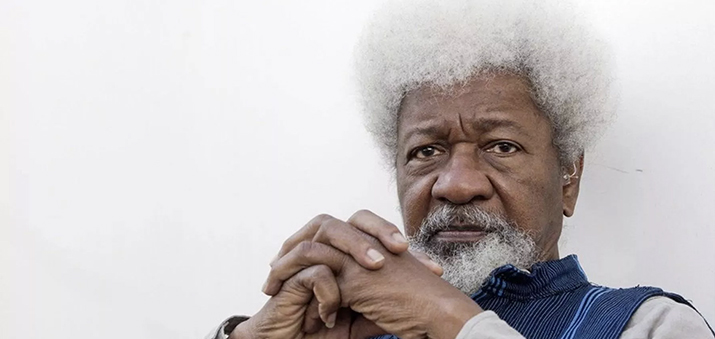ART AND PEACE
YOU DON’T NEED AN ANNIVERSARY TO TALK ABOUT A WRITER
Wole Soyinka, awarded the Nobel Prize for Literature in 1986, is alive and well yet he is the man who died. He claims it himself in a book he wrote in prison from 1967 to 1969. He was arrested for asking for a ceasefire during the civil war in Nigeria and exposed the situation in Biafra to the world. “The Man Died” is a book of which there is no anniversary since the author is in good health and therefore it is "normal" that nobody talks about it. Most will do so when the splendid eighty-six year old writer from Abeokuta will fly to more distant shores and become a myth. The courage to challenge power to ask for peace, however, is always current and must be remembered every day without waiting for special occasions.
From 1967 to 1969 he was in prison for calling for a ceasefire during the civil war in Nigeria
Soyinka's reflection takes root at a precise moment, that in which the prison guards, almost ashamed, began to chain his legs as the result of a direct order: to bend the will of a man guilty of having asked for an end to hostilities. Perhaps they knew that binding him would not be enough. Perhaps they were just agents working in the service of a dictatorship. Perhaps they had no choice. Perhaps they weren't heroes. They certainly didn't stop him
Oreste del Buono writes in the preface to the first edition of the book in Italian that Wole keeps score, makes life complicated for the torturers, knows the "psychological games" of interrogations, knows how to move among the curious and perplexed looks that follow moving from one prison to another. He is an idealist, not naive. He is brave, he is a writer and he does what he knows how to do: he writes and denounces. His prose is made up of explicit declarations, vehemently exposed, giving names and surnames in order to uphold an idea of active peace.
Soyinka paid firsthand to defend his ideas against tyranny in Nigeria: he was imprisoned, sentenced to death and forced into exile by the military dictatorship. He is not a hero, but he believes in what he writes and continues to do so because the problems are not over yet. A large part of the population of his country remains hostage to daily violence, especially in the north-eastern regions where the action of Boko-Haram, an Islamist group responsible for years of assault and terrorist attacks, has caused thousands of victims, mostly civilians. Even in this case Wole did not hold back and did not tire of writing and speaking. His words do not lose their effectiveness with age and the call to mobilize against terrorists is clear. It is a battle "which is in every respect ours, primarily ours," he writes. “We cannot sit idle and watch our innocent girls become slaves to thugs and terrorists. That would be betraying our children and condoning the activity of these kidnappers ". This time they didn't arrest him.







